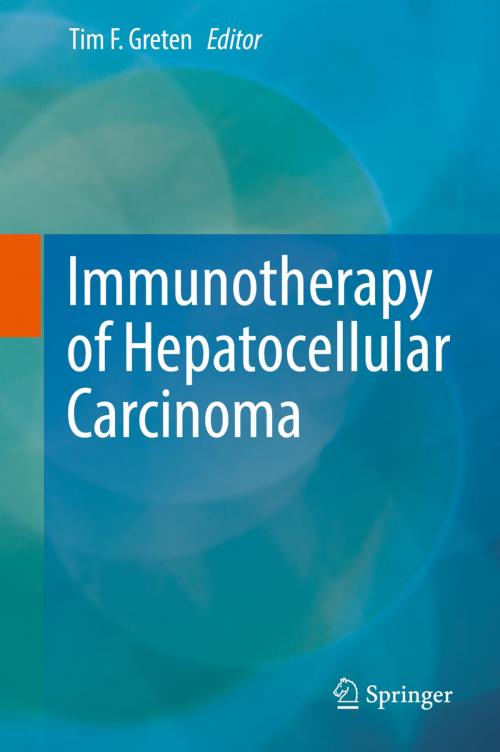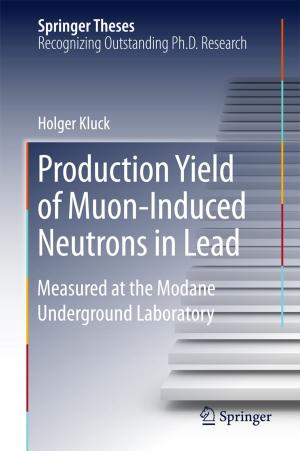Immunotherapy of Hepatocellular Carcinoma
Nonfiction, Health & Well Being, Medical, Reference, Research| Author: | ISBN: | 9783319649580 | |
| Publisher: | Springer International Publishing | Publication: | October 4, 2017 |
| Imprint: | Springer | Language: | English |
| Author: | |
| ISBN: | 9783319649580 |
| Publisher: | Springer International Publishing |
| Publication: | October 4, 2017 |
| Imprint: | Springer |
| Language: | English |
In this book we provide insights into liver – cancer and immunology. Experts in the field provide an overview over fundamental immunological questions in liver cancer and tumorimmunology, which form the base for immune based approaches in HCC, which gain increasing interest in the community due to first promising results obtained in early clinical trials.
Hepatocellular carcinoma (HCC) is the third most common cause of cancer related death in the United States. Treatment options are limited. Viral hepatitis is one of the major risk factors for HCC, which represents a typical “inflammation-induced” cancer.
Immune-based treatment approaches have revolutionized oncology in recent years. Various treatment strategies have received FDA approval including dendritic cell vaccination, for prostate cancer as well as immune checkpoint inhibition targeting the CTLA4 or the PD1/PDL1 axis in melanoma, lung, and kidney cancer. Additionally, cell based therapies (adoptive T cell therapy, CAR T cells and TCR transduced T cells) have demonstrated significant efficacy in patients with B cell malignancies and melanoma. Immune checkpoint inhibitors in particular have generated enormous excitement across the entire field of oncology, providing a significant benefit to a minority of patients.
In this book we provide insights into liver – cancer and immunology. Experts in the field provide an overview over fundamental immunological questions in liver cancer and tumorimmunology, which form the base for immune based approaches in HCC, which gain increasing interest in the community due to first promising results obtained in early clinical trials.
Hepatocellular carcinoma (HCC) is the third most common cause of cancer related death in the United States. Treatment options are limited. Viral hepatitis is one of the major risk factors for HCC, which represents a typical “inflammation-induced” cancer.
Immune-based treatment approaches have revolutionized oncology in recent years. Various treatment strategies have received FDA approval including dendritic cell vaccination, for prostate cancer as well as immune checkpoint inhibition targeting the CTLA4 or the PD1/PDL1 axis in melanoma, lung, and kidney cancer. Additionally, cell based therapies (adoptive T cell therapy, CAR T cells and TCR transduced T cells) have demonstrated significant efficacy in patients with B cell malignancies and melanoma. Immune checkpoint inhibitors in particular have generated enormous excitement across the entire field of oncology, providing a significant benefit to a minority of patients.















